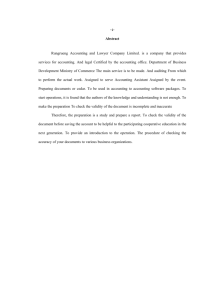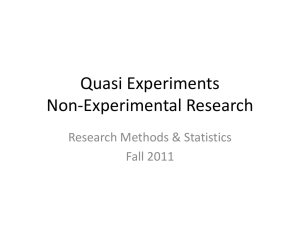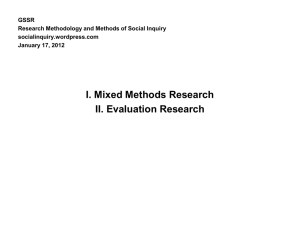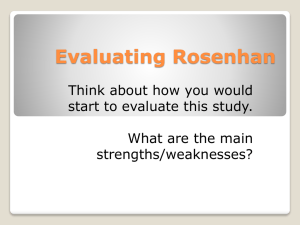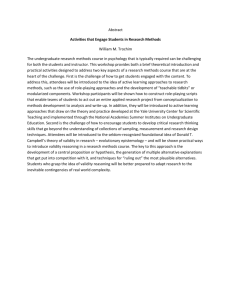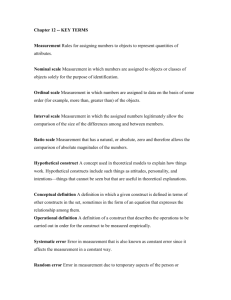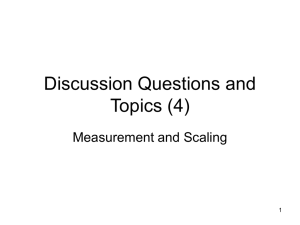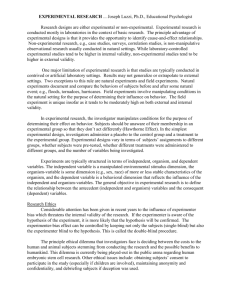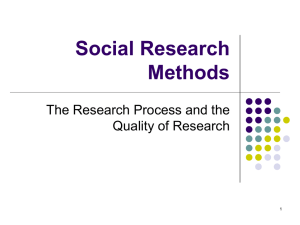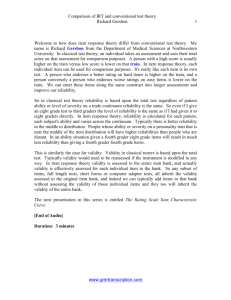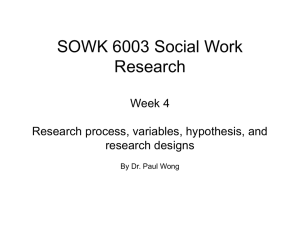CHAPTER 4 STUDYING BEHAVIOR VARIABLES Four General
advertisement
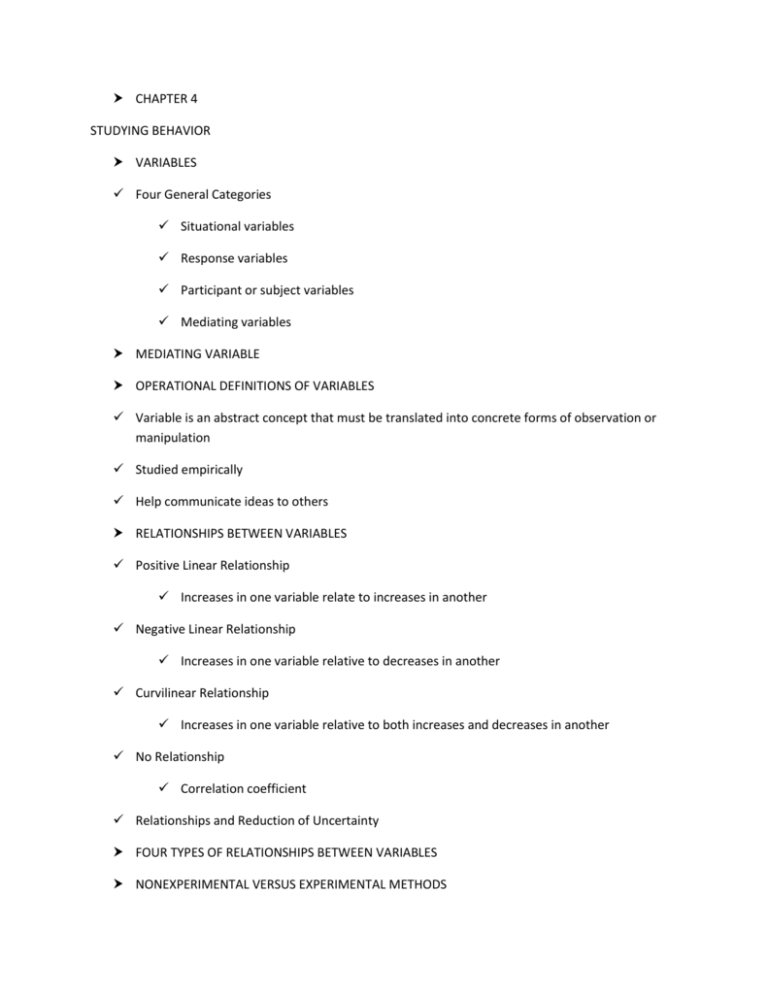
CHAPTER 4 STUDYING BEHAVIOR VARIABLES Four General Categories Situational variables Response variables Participant or subject variables Mediating variables MEDIATING VARIABLE OPERATIONAL DEFINITIONS OF VARIABLES Variable is an abstract concept that must be translated into concrete forms of observation or manipulation Studied empirically Help communicate ideas to others RELATIONSHIPS BETWEEN VARIABLES Positive Linear Relationship Increases in one variable relate to increases in another Negative Linear Relationship Increases in one variable relative to decreases in another Curvilinear Relationship Increases in one variable relative to both increases and decreases in another No Relationship Correlation coefficient Relationships and Reduction of Uncertainty FOUR TYPES OF RELATIONSHIPS BETWEEN VARIABLES NONEXPERIMENTAL VERSUS EXPERIMENTAL METHODS Nonexperimental Method Direction of Cause and Effect The Third-Variable or Confounding Variable Problem Experimental Method Experimental Control Randomization NON-EXPERIMENTAL VERSUS EXPERIMENTAL METHODS The casual possibilities in a non-experimental study INDEPENDENT AND DEPENDENT VARIABLES Independent = Cause Dependent = Effect CAUSALITY Inferences of Cause and Effect Require Three Elements: 1. Temporal precedence 2. Covariation between the two variables 3. Need to eliminate plausible alternative explanations ADVANTAGES OF MULTIPLE METHODS Artificiality of Experiments Ethical and Practical Considerations Participant Variables Description of Behavior Successful Predictions of Future Behavior EVALUATING RESEARCH: FOUR VALIDITIES Construct Validity Adequacy of the operational definition of variables Internal Validity Ability to draw conclusions about causal relationships from our data EVALUATING RESEARCH: FOUR VALIDITIES External Validity Extent to which the results can be generalized to other populations and settings Conclusion Validity Draws reasonable conclusions based upon an analysis of the data Test Validity Construct Validity Does the scale correlate with the theorized psychological construct? Evaluate the adequacy of the operational definition. • Convergent – degree to which operation is similar to others it should be similar to (other tests of the same construct) • Divergent – degree to which it is not similar to others it should not be similar to. Content Validity Extent to which test represents all facets of a given social construct – experts decide Test Validity (cont) Criterion validity Measure of how well one variable predicts outcome based on information from other variables – how closely related to the real world Concurrent – relation to other concrete criteria assessed simultaneously Predictive – degree to which it predicts future events
